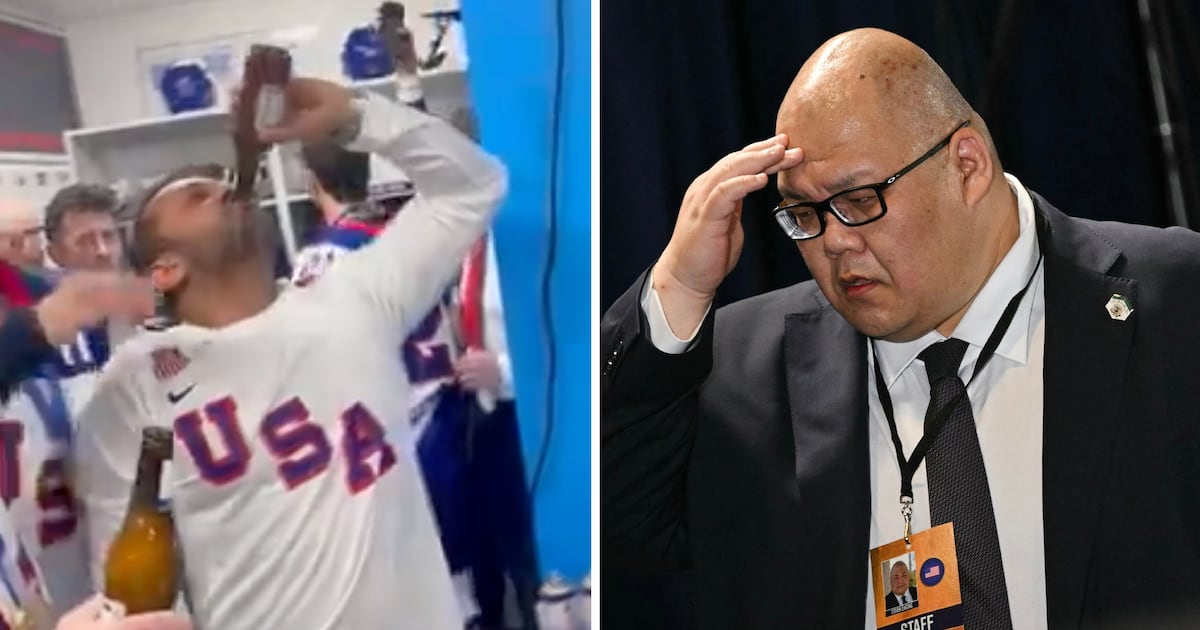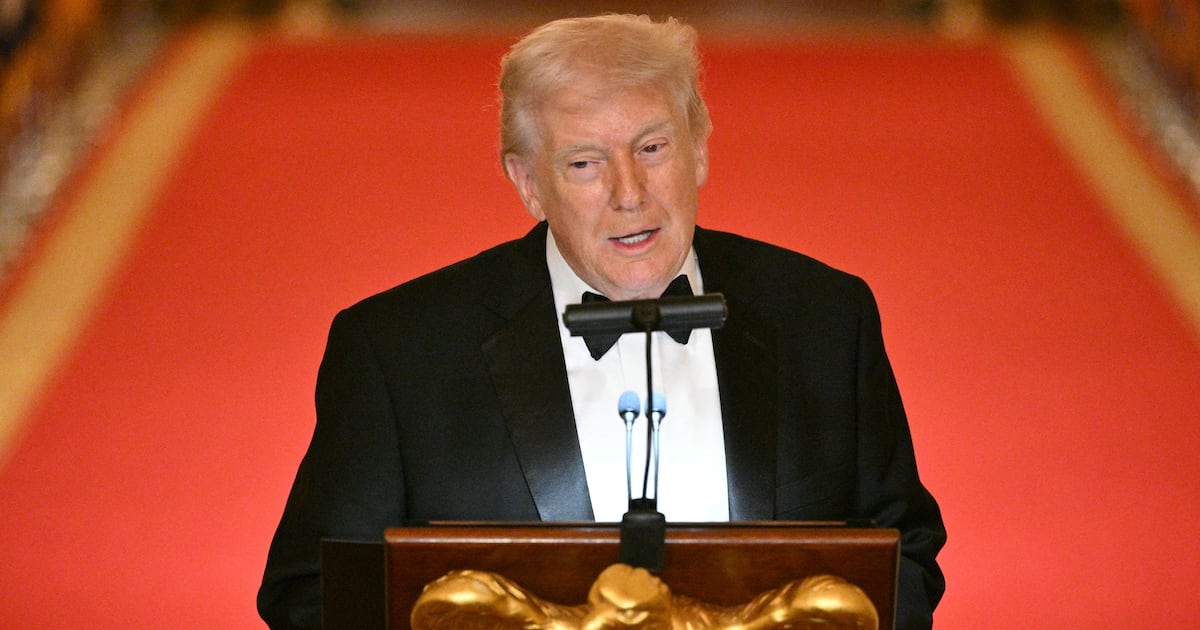Forget The Social Network or Wall Street 2: Money Never Sleeps. For sheer avarice and arrogance, there's no better cautionary tale than the one currently playing out in Manhattan federal court between Guy Hands, a towering figure in the world of international finance, and investment bank Citigroup over Hands' $6.7 billion purchase of record label EMI in May 2007.
You see, the EMI purchase hasn't worked out exactly as Hands planned (more on that later) and now he's looking for anyone to blame but himself for the deal's failure.
While the trial has gone largely unnoticed stateside, outside of the rather insular world of private equity, it is a major news story across the pond, since it features two of England's most important institutions: Hands and EMI. Indeed, to understand the hubris that drove Hands to pay so much for EMI—at $6.7 billion, his offer valued the record label at more than twice its true worth—one must recognize the importance of EMI to the pedigree of the music industry and British business. Not unlike AT&T, General Motors, or McDonald's here in the U.S., EMI is that rare company with a historical legacy that defines not just the industry in which it operates, but also the country in which it resides.
Founded in 1931, EMI has permanently etched a place for itself in the annals of music history and British business by serving as the record label home currently or at one point for such legendary English acts as The Beatles, Pink Floyd, David Bowie, The Sex Pistols, Queen, The Rolling Stones, and, more recently, Coldplay, George Michael, and Lily Allen. The label owns the famed Abbey Road Studios, which is as much an English institution as it is a musical one. Legend has it that during its heyday EMI was so important to both the practice and perception of British business that the company consulted with the queen of England on major decisions.
EMI, however, is a quarter century removed from its peak of prominence, and the last decade in particular has been mostly unkind to the storied label. Financial struggles have resulted in constant merger rumors and a string of executive and artist defections have sapped EMI of morale and hits. So great were EMI's errors, among them signing Mariah Carey to an $80 million deal only to drop her after one album, that the company earned the derisive moniker "Every Mistake Imaginable." (EMI really stands for Electric & Musical Industries.) Multiply NBC's status as television's cellar dweller by 10 and you get a rough idea of how the music industry regarded EMI.
If you can't be the hero, you may as well be the villain, right?
It was against this backdrop that Guy Hands decided to buy the company in 2007, believing he could restore it to its former glory despite himself, nor any member of his team at private-equity firm Terra Firma, having any prior music-business experience. In the three years since, however, the debt EMI had to take on from the purchase—some $3 billion worth—coupled with the continued decline in CD sales and persistence of piracy has brought the record label to the brink of bankruptcy. As a result, Terra Firma's entire $6.7 billion investment has been wiped out, as well as a large chunk of Hands' own $400 million net worth.

So, Hands suing Citigroup over the deal was perhaps more a fait accompli than a surprise. Larded with financial minutia, Hands' case argues that he never would have offered so much for EMI had he not been duped by the Citigroup banker running the sale process into believing that he had to pay that amount or lose EMI to another buyer. "The banker made me do it," is what Hands is essentially charging, claiming that Citigroup banker David Wormsley misrepresented the fact that another private equity firm, Cerebus Capital Management, was bidding on EMI when they had already dropped out of the auction. Charlie Sheen's response that reports of a cocaine-fueled binge that resulted in a trashed hotel room at The Plaza and a hooker locked in a bathroom for safety were "overblown" was less flimsy. (Hands' legal team has been basically pantsed by the judge overseeing the trial.)
It is not only hard to believe that Hands, a seasoned dealmaker who has bought and sold billions of dollars worth of companies over the course of more than 20 years at such prestigious banks as Goldman Sachs and Nomura Securities, was outsmarted—it's absurd. To begin with, his charge that there weren't other buyers interested in EMI is not entirely true. Warner Music Group was—and still is—interested in buying EMI at the right price. Cerebus, too, wanted to buy EMI, but backed away after the price became too expensive. And, in an article that was introduced as evidence in the court case last week, while at The New York Post a colleague and I reported that at least two other private equity firms—One Equity Partners, which is part of JP Morgan, and Fortress Investment Group—also bid on EMI. The timing of their interest is a matter for attorneys to dicker over that obscures two indisputable truths about the deal, the first being that every potential buyer of EMI had the financial discipline (or just good sense) to realize that half of what Hands was offering was still twice as much as what the company was worth. And the second being that Hands should know better than anyone that dealmaking is nothing if not corporate brinkmanship, and as much as he wants to say that he got played by Wormsley, no one forced him to sign the check. The unavoidable and ugly truth is that the lone driver behind Hands' EMI purchase was his immense hero complex. Quite simply, Hands, already a Fleet Street icon, thought that restoring EMI to its former eminence would elevate him to the status of cultural savior and great protector of England's musical heritage. He was gunning to become Britain's version of Lee Iacocca or Jack Welsh. But don't take my word for it; listen to the man himself.
"What we are doing is trying to build a business that gets back to its former glory," Hands, a tall, portly man with disheveled hair and typically British teeth, told The Guardian in 2008.
And why not? Hands made his reputation as a turnaround artist, investing in underperforming companies in need of management, operational, or strategic change. He bought into England's struggling pub business in the early '90s and made hundreds of millions of dollars on his way to becoming the U.K.'s biggest bar owner. He revived movie theater chains United Cinemas International and Odeon Cinemas, and invested in such unglamorous businesses as waste management and leasing, all to great financial success.
The hubris Hands gained from his track record is what led him to EMI. By his own admission in court, he didn't even conduct proper due diligence on EMI's finances before submitting his offer. After being run into the ground by Eric Nicoli—EMI's former CEO who also came to the record label without any prior music industry experience and is best known throughout England as the "biscuit king" for developing the Yorkie chocolate bar—Hands figured a turnaround would require little more than cutting some staff, trimming the artist roster, and marketing and promoting albums better. He "warned artists they would be dropped if they did not work hard enough for the group and called for a 'fundamental shift' in the way [EMI] did business," wrote Reuters.
A good indicator of how easy Hands thought the task would be can be gleaned from the fact that he replaced Nicoli not with a music industry veteran, but instead with an even bigger novice: Elio Leoni-Sceti, a marketing executive with Procter & Gamble and Reckitt Benckiser.
"EMI, our most recent investment, is a classic example," Hands once said. "We're just hoping EMI is as bad as we think it is."
Hands quickly found out that it was. And, to further complicate matters, it turns out that managing talent is a lot different that selling liquor. Hands' smug disdain for how the music industry coddles its stars combined with EMI's financial dire straits resulted in a major artist backlash. Tension is an inherent and essential ingredient in the artist-label relationship—in the Sex Pistols' eponymous song about EMI, one line suggests that the label probably "wished that we had died." But this collective backlash was particularly venomous. Upon their leaving the label, Radiohead described Hands' team as similar to "a confused bull in a china shop."
After Hands fired U.K. music head Tony Wadsworth, Coldplay manager Dave Holmes threatened to move the band from EMI, saying, "Coldplay have a lot of options. Tony was the reason a lot of bands signed to EMI. Artists want to work with music people, not finance guys."
The Rolling Stones, Queen, Robbie Williams, Joss Stone, Lily Allen, and Paul McCartney all either left EMI or spoke out against Hands' stewardship in the months after he took control. Less than two years after buying EMI, Hands' investors forced him to resign as CEO of Terra Firma over anger at their losses.
Since then, Hands has pretty much taken a scorched earth approach to EMI. If you can't be the hero, you may as well be the villain, right? Using the credit crisis as cover, Hands started publicly distancing himself from EMI in 2009, telling the audience at an investor conference that if he waited just two weeks longer, his team wouldn't have done the deal and "would have looked like geniuses." A year later, he briefly put Abbey Road Studios up for sale but was forced to pull the famed studio where The Beatles' eponymous album was recorded off the market after the public outcry grew too great. And Hands' desperation in trying to restore his reputation with the Citigroup trial, which is expected to wrap up by week's end, shines such a harsh light on an otherwise stellar investment career that it actually undermines his credibility more than the deal itself. Man up, dude, you made a mistake. Honestly, Jerry Levin and Steve Case didn't whine as much about their Time Warner/AOL deal gone bad and it was worth quite a bit more. (The judge ruled Friday that even if Hands wins he could only recover 25 percent of the $8 billion in damages he is seeking, or just $2 billion, which means that best case scenario is that he blew $6 billion in his investors' money on the deal.)
Despite Hands' efforts to the contrary—it can't be good for morale when your owner is going around publicly wishing he didn't own you—EMI is currently performing well. New CEO Roger Faxon and an artist-and-development team led by Greg Thompson have strung together a string of hits to rival major label competitors Universal Music Group, Sony Music, and Warner Music Group. Katy Perry is the label's first legitimate mainstream breakout star in years, and Lady Antebellum has successfully crossed over to a more pop-oriented audience without alienating the band's core country fans. (Both acts had No. 1 albums this year.) The Gorillaz had a successful release as well; LCD Soundsystem gives the label hipster cache; and Kylie Minogue is still a formidable international dance music presence. Morale is picking up and pride of performance is returning to the hallowed halls of EMI.
So here's to hoping Hands loses his case, because the employees of EMI deserve better than an openly contemptuous owner. They deserve a supportive financial steward who can best position the company's talented creative professionals for a legitimate shot at redemption. But, perfectly underscoring the shit cycle that is EMI's recent history, in Hands' absence, Citigroup would take control of the company! It really does suck to be a record label these days, huh?
Peter Lauria is senior correspondent covering business, media, and entertainment for The Daily Beast. He previously covered music, movies, television, cable, radio, and corporate media as a business reporter for The New York Post. His work has also appeared in Avenue, Blender, and Media Magazine, and he's appeared on CNBC, Bloomberg, BBC Radio, and Reuters TV.






